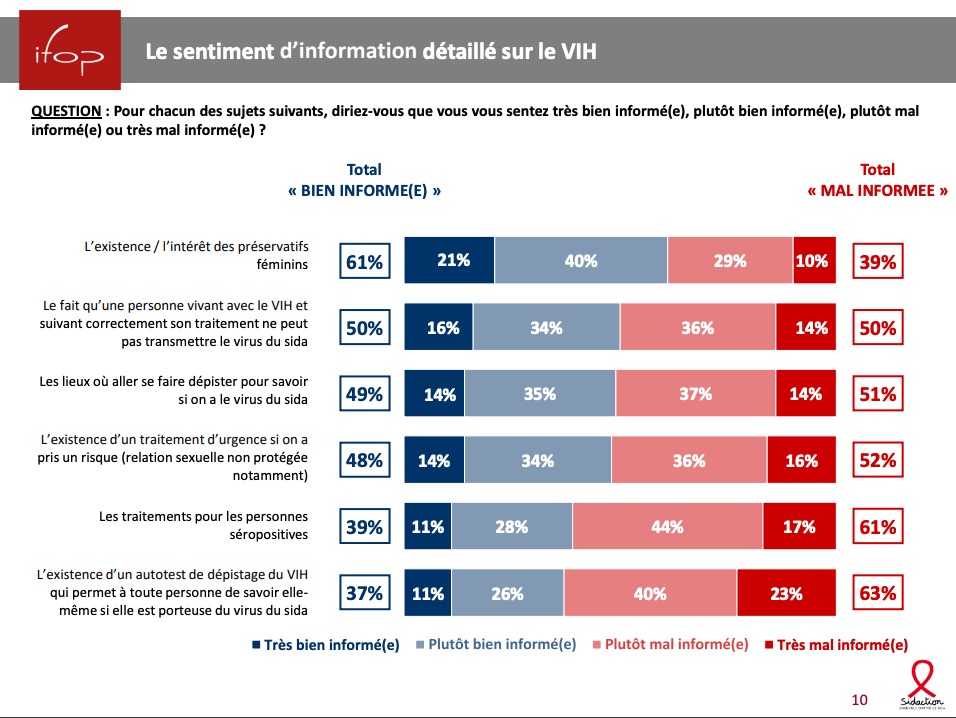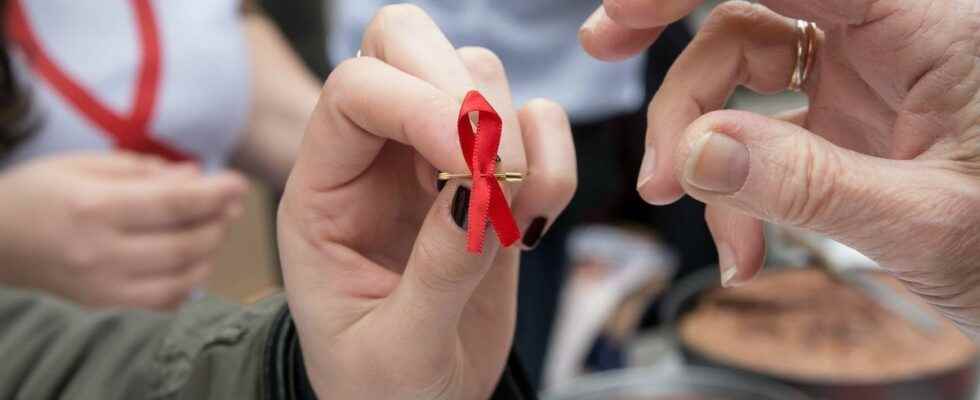Posted ,
Reading 3 mins.
The weekend of Sidaction 2022 is approaching, it will take place from March 25th. On this occasion, the association which fights against HIV, the virus responsible for AIDS, asked Ifop to assess the knowledge of young people aged between 15 and 24 about this virus.
Misinformation linked to the health crisis
The Covid-19 epidemic has obscured many other health issues since it started in China to spread across the world. Although it is understandable that the pandemic is highly publicized in view of its numerous health, humanitarian and economic impacts, Covid-19 takes over epidemics whose stakes are crucial, such as AIDS (acquired immunodeficiency syndrome ). The French, especially young people, are less well informed about HIV than before the health crisis.
As the Ifop survey reveals, “in 2022, 69% of young people feel well informed about HIV/AIDS” whereas two years before, “they were 74%“, which represents “a drop of 5 pointss”. According to Florence Thune, the general manager of Sidaction, the feeling of misinformation about HIV/AIDS continues and it has not returned to pre-Covid levels.
The other findings are more edifying, because the results of the survey show that less than one in two young people questioned do not know where to get tested, to the great regret of Mrs. Thune: “Despite the habit of screening acquired with COVID, the latter does not seem to have become a reflex for HIV”. However, detecting this virus, like Sars-Cov-2, is one of the essential preventive elements in the fight against AIDS.
This disinformation on HIV and AIDS could be linked to the saturation of media spaces as well as to the Covid-19 which is taking over. Moreover, as Frédéric Dabo, the Opinion Managing Director of the Ifop Group, explains, “HIV is moving away from the concerns of young people because it is invisible […] 16% of those questioned also declare that they do not seek information on the AIDS virus”.

A trivialization of the disease
In addition to the health crisis, it would seem that AIDS is a subject that is becoming ordinary, which is becoming commonplace among young people. Also, they are about 40% to think that the number of contaminations is decreasing and that people with HIV are not discriminated against.
It is not yet the trivialization of the disease that is problematic, but the fact that young people still have distorted beliefs about AIDS. For example, 23% believe that an HIV-positive person can transmit HIV by kissing another person, while 19% of respondents believe that the emergency contraceptive pill has a protective effect against the virus.
Moreover, more than half of respondents (52%) are unaware of the existence of emergency treatment. Also, 35% of the young people questioned think that HIV is transmitted during safe sex with an HIV-positive person.
In view of the results, the Sidaction association recommends the implementation of urgent actions so that each young person is correctly informed about HIV and AIDS. One of them is to carry out information campaigns in schools, in particular the application of “3 compulsory sessions of comprehensive sexuality education in middle school and high school. Even if these courses are already planned, Florence Thune explains that “in practice, their implementation is insufficient”.
Indeed, the survey indicates that less than half of the respondents were able to benefit from these sessions only once. On the other hand, a quarter of the young people questioned say that they have never benefited from any of these lessons in sexual health during their schooling. This is why, for Sidaction, “It is urgent to resume prevention and awareness actions on HIV/AIDS and sexual health among 15-24 year olds”.
